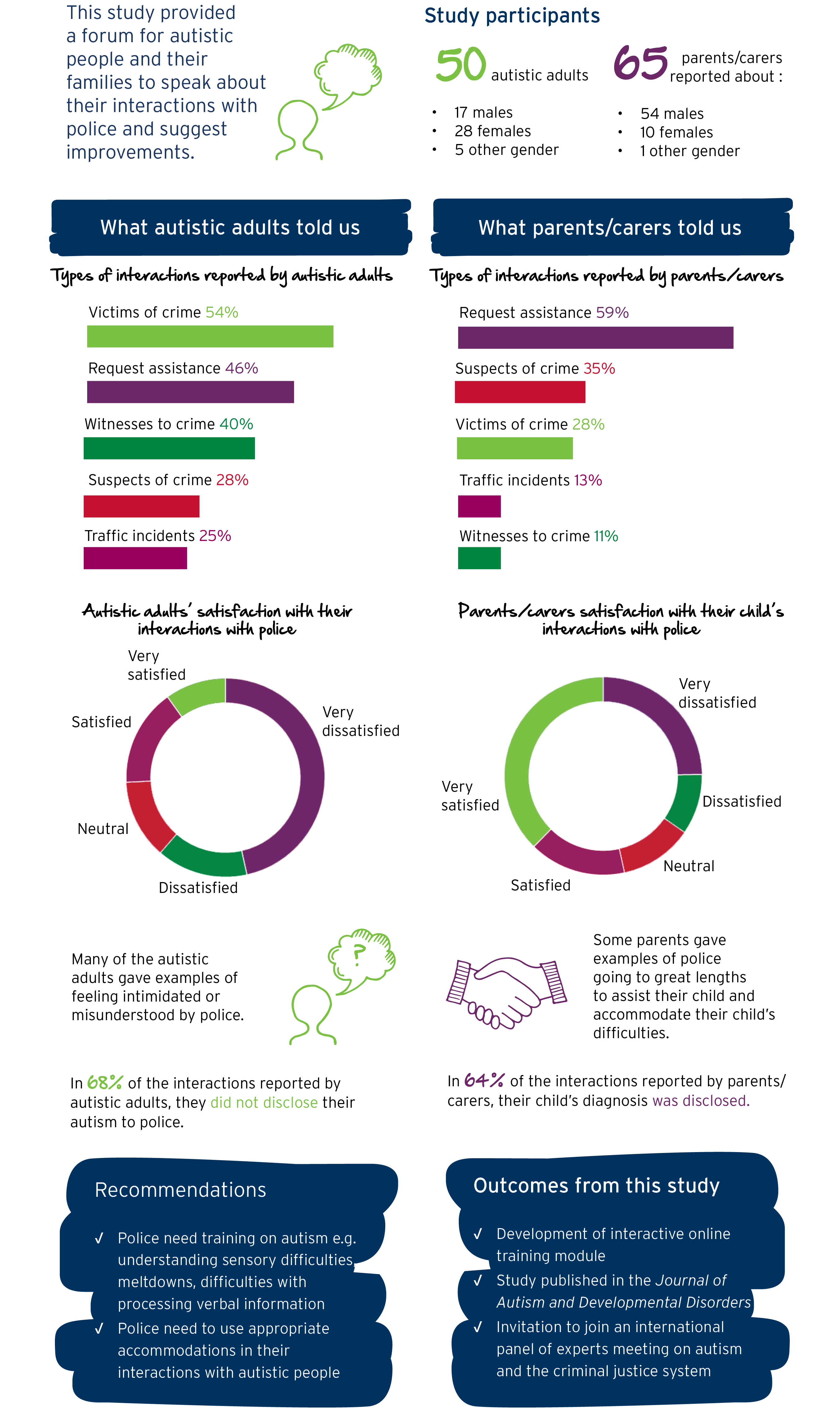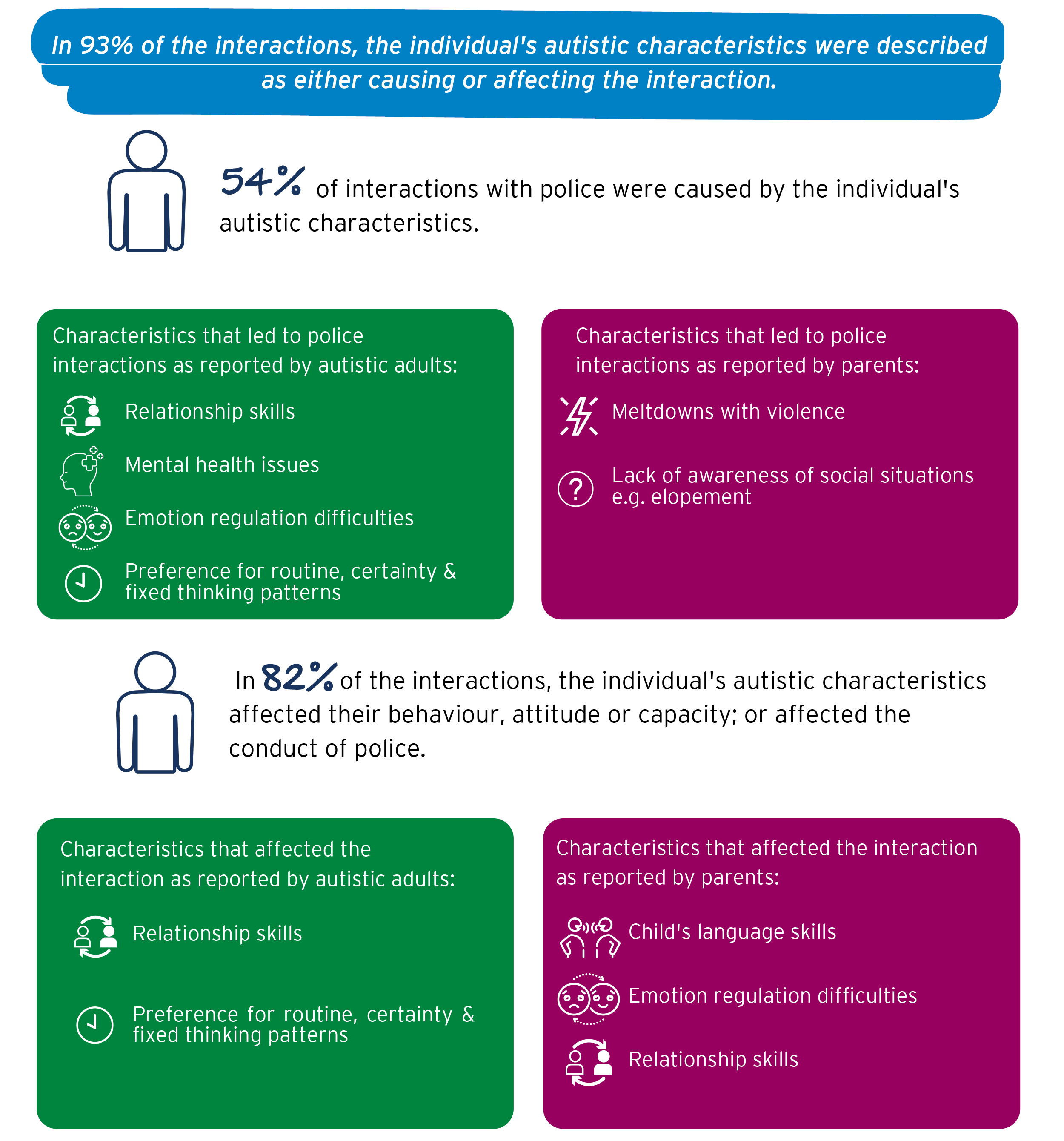Why
Some previous research has indicated that people on the autism spectrum may be more likely to have interactions with police than the non-Autistic population. This may be associated with some of the traits and behaviours of autism, which may also affect the nature of the interactions that Autistic people have with police. In other countries, police have generally reported feeling confident and competent in interacting with autistic people, while Autistic adults have predominantly reported low levels of satisfaction with their interactions with police. However, to date there has been no information about the experiences of people on the autism spectrum when interacting with police in Australia.
What happens when adults and children on the autism spectrum interact with police? Do police in Australia recognise and understand what it is to be a person on the autism spectrum?
The research
The aim of this exploratory research was to survey and interview Autistic adults and parents/carers of children and adults on the spectrum who have interacted with police in the past five years in Australia in order to:
- Describe the nature of interactions between people on the autism spectrum and police in Australia, including how Autistic adults and family members of individuals on the spectrum perceive these interactions;
- Explore whether any individual factors (age, respondent type, mental health, intellectual disability) or contextual factors (disclosure of autism, type of involvement with police) influence perceptions of interactions with police;
- Explore how autism-related characteristics may affect an Autistic individual’s interactions with police.
What we learnt

We also learnt

Publications
Love, A.M.A., Gibbs, V., Hwang, Y.I., & Gallagher, E. (2022). Autism training for Australian police: A pilot study of the effectiveness of an online module to improve police officer autism awareness. ANZEBP Police Science Journal..
Gibbs, V., Love, A.M.A., Cai R.Y., & Haas, K. (2021). Police interactions and the autistic community: perceptions of procedural justice. Disability & Society.
Haas, K., & Gibbs, V. (2020). Does a Person’s Autism Play a Role in Their Interactions with Police: The Perceptions of Autistic Adults and Parent/Carers. Journal of Autism and Developmental Disorders.
Gibbs, V., & Haas, K. (2020). Interactions Between the Police and the Autistic Community in Australia: Experiences and Perspectives of Autistic Adults and Parents/Carers. Journal of Autism and Developmental Disorders.
Media
- ABC radio: Police training module in autism is now mandatory for South Australia Police (6 April 2022)
- SBS News: Australian police are being trained to improve interactions with people with autism (22 December 2019)
Making a difference
This research has led to the development of an autism training module that is now part of recruit training with ACT Police, and South Australia Police. The online training module has been supplied to Queensland Police, NSW Police and Victoria Police.
This study won a 2019 Autism CRC Award for Achievement in Autism Spectrum Research.
In recognition of the high calibre of research conducted by the ARCAP team, Aspect’s Research and Assessments National Manager, Vicki Gibbs has joined an international group of autism and justice system experts that is working on a policy brief aimed at improving interactions between autistic people and the criminal justice system.
Research team
Vicki Gibbs, Aspect Research Centre for Autism Practice (ARCAP)
Kaaren Haas, ARCAP
Started
2018
Ends
2019
Funding
Aspect

